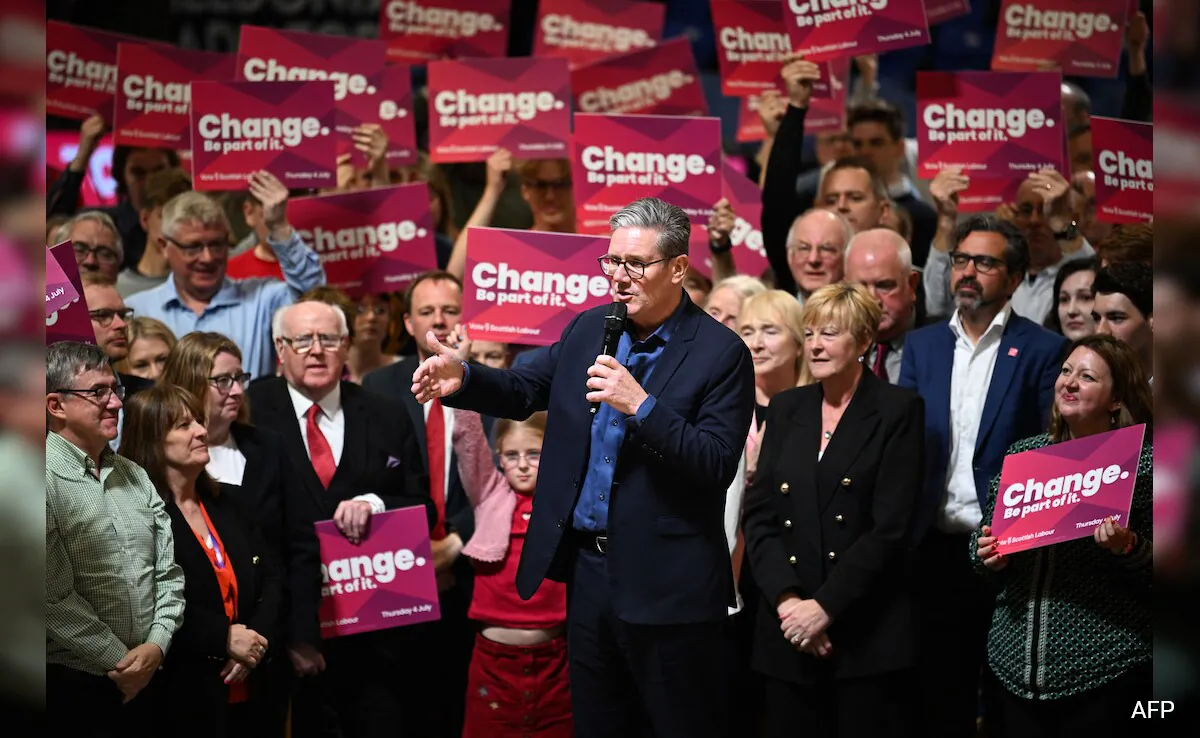In a political earthquake, the center-left Labour Party has secured a historic victory in the UK general election, dealing a crushing blow to the incumbent Conservative party. Labour leader Keir Starmer’s triumph was celebrated amidst jubilant scenes at the Tate Modern art gallery in London, where he declared, “Change begins now. It feels good, I have to be honest.” The party’s landslide win marks the largest majority in its history, signaling a seismic shift in British politics.
In a poignant address outside Downing Street, outgoing Prime Minister Rishi Sunak conceded defeat and announced his intention to step down as leader of the Conservative party. “I have heard your anger, your disappointment, and I take responsibility for this loss,” Sunak acknowledged in a solemn speech, following the party’s worst-ever electoral defeat. The Tories, once a formidable political force, suffered a major setback, with prominent figures including former Prime Minister Liz Truss, House of Commons leader Penny Mordaunt, Defense Secretary Grant Shapps, and Justice Secretary Alex Chalk losing their seats in a stunning rebuke from the electorate.
With Sunak formally tendering his resignation to King Charles, the handover of power is imminent. Labour leader Keir Starmer is poised to meet the monarch at Buckingham Palace, where he will receive a formal invitation to form a new government. Following this pivotal audience, the new prime minister will make a historic journey to Downing Street to address the nation, marking the dawn of a new era in British politics.
Amidst the seismic upheaval, Reform UK, a right-wing populist party led by Nigel Farage, made a breakthrough by securing four parliamentary seats. Farage’s long-awaited entry into the parliament after multiple unsuccessful attempts underscores the resurgent influence of right-wing politics in the UK.
Meanwhile, the Liberal Democrats, revitalized and resurgent, emerged as the nation’s third-largest party in Westminster, unseating several high-profile Conservatives. The Green Party also made significant gains, quadrupling its presence in the Parliament with an impressive four seats, reflecting growing support for environmental and progressive policies.
Amidst these dramatic shifts, the Scottish National Party (SNP) suffered significant losses in Scotland, effectively dampening the prospects of an independent Scotland in the near future. Labour’s substantial gains in Scotland, seizing a number of seats from the SNP, underscore the shifting tides in the Scottish political landscape.
However, the specter of diminishing political engagement hung over the election outcome, with voter turnout expected to plummet to its lowest levels in more than 20 years. As of early Friday morning, turnout hovered just below 60%, underscoring concerns about disengagement and apathy among the electorate.















